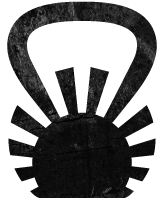The Power of Progress: Why Tracking Your CrossFit Journey Matters
In the fitness methodology of CrossFit, where every rep, every second, and every pound lifted counts, tracking your progress isn't just a nice-to-have—it's an essential tool for success. Whether you're a seasoned athlete or just starting your CrossFit journey, keeping tabs on your performance in lifts and metcons (metabolic conditioning workouts) can be a game-changer. Here's why:
1. Motivation Through Measurable Progress
There's nothing quite like the rush of seeing your numbers improve over time. By consistently tracking your lifts and metcon times, you create a tangible record of your progress. That PR (personal record) you hit on your back squat or the seconds you shaved off your "Fran" time become more than just fleeting moments—they're concrete evidence of your hard work paying off. This visible progress serves as a powerful motivator, pushing you to keep showing up and giving your all, even on days when your motivation might be lagging.
2. Identifying Strengths and Weaknesses
Tracking your performance across various CrossFit movements and workouts helps you paint a clear picture of your athletic profile. You might notice that your Olympic lifts are progressing rapidly while your endurance in longer metcons is lagging. This insight allows you to tailor your training, focusing extra attention on areas that need improvement while continuing to build on your strengths.
3. Setting Realistic Goals
With a record of your performance, you can set specific, achievable goals based on your actual progress rather than arbitrary numbers. Instead of a vague goal like "get stronger," you can aim to increase your deadlift by 20 pounds in the next three months or improve your "Grace" time by 30 seconds. These concrete goals give your training purpose and direction.
4. Preventing Plateaus
Progress in fitness isn't always linear, but without tracking, it's easy to get stuck in a rut without realizing it. By keeping tabs on your performance, you can quickly identify when you're plateauing and take action. This might mean adjusting your training program, focusing on technique, or addressing factors outside the gym like nutrition or recovery.
5. Celebrating Small Wins
CrossFit can be humbling, and it's easy to focus on what you can't do yet rather than how far you've come. Regular tracking helps you notice and celebrate the small improvements that might otherwise go unnoticed. Maybe you didn't PR your clean and jerk, but you maintained better form throughout the workout—that's progress worth acknowledging!
6. Informed Decision Making
As you accumulate data on your performance, you gain valuable insights that can inform your training decisions. You might notice patterns in your performance related to factors like sleep, nutrition, or time of day. This information empowers you to optimize your training schedule and lifestyle for peak performance.
7. Building Mental Toughness
CrossFit isn't just about physical strength—it's also a mental game. Tracking your progress helps build mental resilience by teaching you to focus on objective measures rather than subjective feelings. On days when the workout feels impossibly hard, you can look back at your tracked progress and remind yourself of how far you've come and what you're capable of achieving.
Tracking your progress in CrossFit lifts and metcons is about more than just numbers—it's about empowering yourself with knowledge, motivation, and a clear path forward. So grab that notebook, download that app, or update that spreadsheet. Your future self will thank you for the valuable insights and motivation that come from consistently tracking your CrossFit journey.
Coach JKH CrossFit Rising Sun East Nashville

